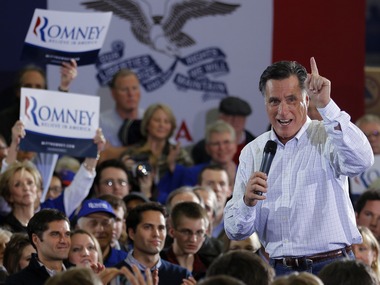Washington: Republican front-runner Mitt Romney has repeatedly failed to win over the party’s conservative base and now faces a brutal and extended political battle with Rick Santorum, a fight that could weaken whichever candidate who wins the nomination to challenge President Barack Obama in November. When the Republicans began their campaigns for the nomination months ago, Obama was seen as a vulnerable incumbent, weighed down by an economy that was struggling to recover from the deepest downturn the United States had suffered since the Great Depression of the 1930s. [caption id=“attachment_246122” align=“alignleft” width=“380” caption=“Reuters”]  [/caption] But since late last summer, as one Republican hopeful after another gained and then lost the support of the party’s conservative base, the economy also began showing signs of a sustained recovery. That in turn strengthened Obama’s standing and led Republicans to stray from the economic message into deeply divisive social issues like contraception. That detour energized conservative Republicans behind Santorum’s ultraconservative message and again focused their distrust of Romney over his past moderate stands on key social issues such as abortion and gay rights. Throughout it all Romney also was heavily weighed down by having presidedas governor of Massachusetts over a reform of the state’s health care system, an overhaul that subsequently served as the model for the plan Obama pushed through Congress during his first year in office. To find favor with Republicans who revile the health care legislation, Romney now says he would work to repeal the Obama plan as have Santorum and third-running Newt Gingrich, the former speaker of the House of Representatives who has now fallen far behind in the contest. He vows to stay in the race, a determination that denies Santorum his desire to finally be in a one-on-one race with Romney. With the nominating race now ever more chaotic, Romney still holds an huge lead in delegates to the Republican national nominating convention in August in Tampa, Florida. But he is in danger of being unable to amass the 1,144 delegates needed to assure him of the nomination before the convention opens, and that could lead to a politically bloody battle in Tampa that would further weaken whichever candidate emerges as the standard-bearer against Obama. After Romney turned in third-place finishes last Tuesday in primaries Alabama and Mississippi, Romney was forced further on the defensive. Santorum’s big wins in both Southern states damaged not only Romney but also undid Gingrich’s plans to stage a campaign rebirth with wins in the Deep South. Now with no primary is too minor, Santorum has stormed into Puerto Rico ahead of the Sunday vote there, and Romney put nearly USD 1 million into television advertising in Illinois, which will be the next big-state showdown on Tuesday. “If we keep winning races, eventually people are going to figure out that Gov. Romney is not going to be the nominee,” said Santorum, eager to build on his unexpected victories in Alabama and Mississippi. But Santorum may have hurt his chances in predominantly Spanish-speaking Puerto Rico when he told a newspaper interviewer from the Caribbean island that English would have to be the “main language” if the US territory were to become a state. AP
With the nominating race now ever more chaotic, Romney still holds an huge lead in delegates to the Republican national nominating convention in August in Tampa, Florida.
Advertisement
End of Article
Written by FP Archives
see more


)

)
)
)
)
)
)
)
)



